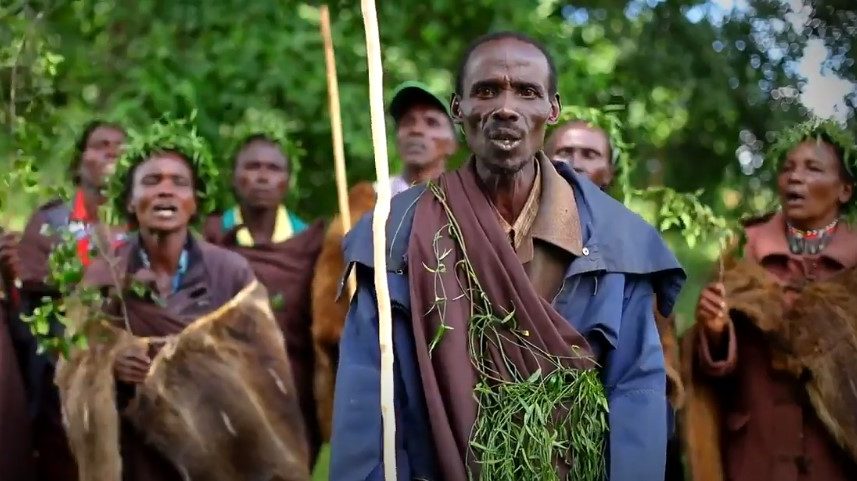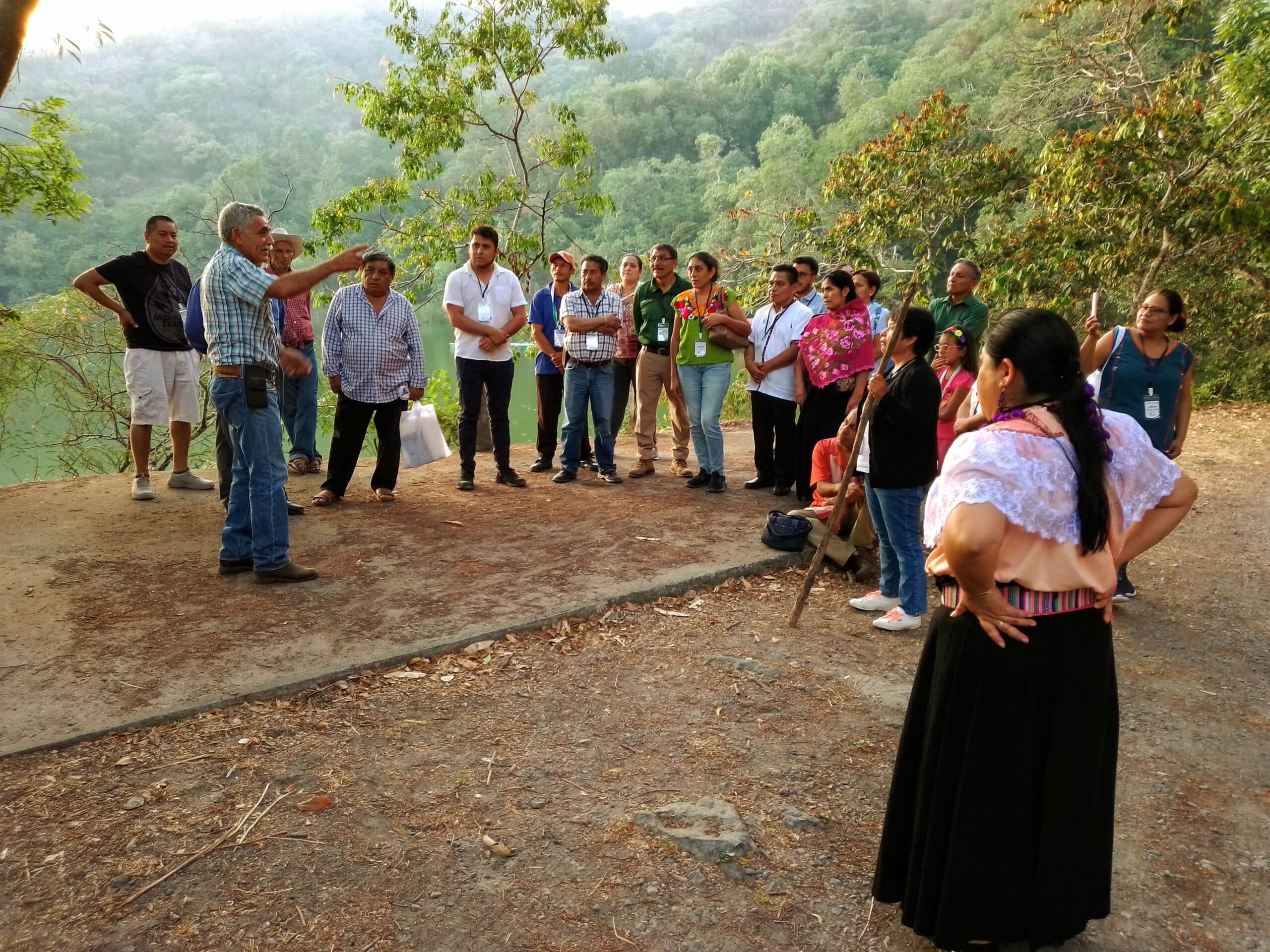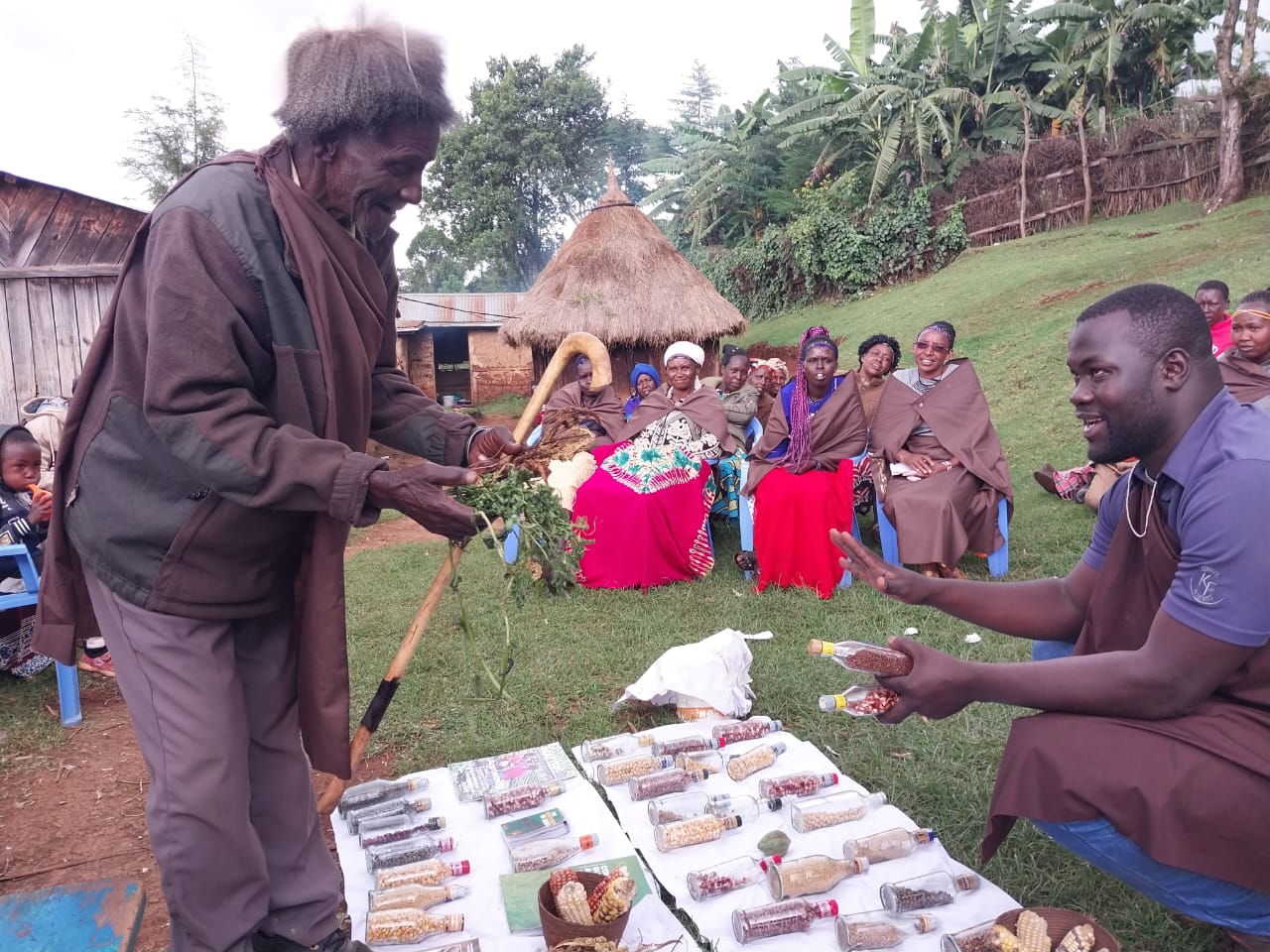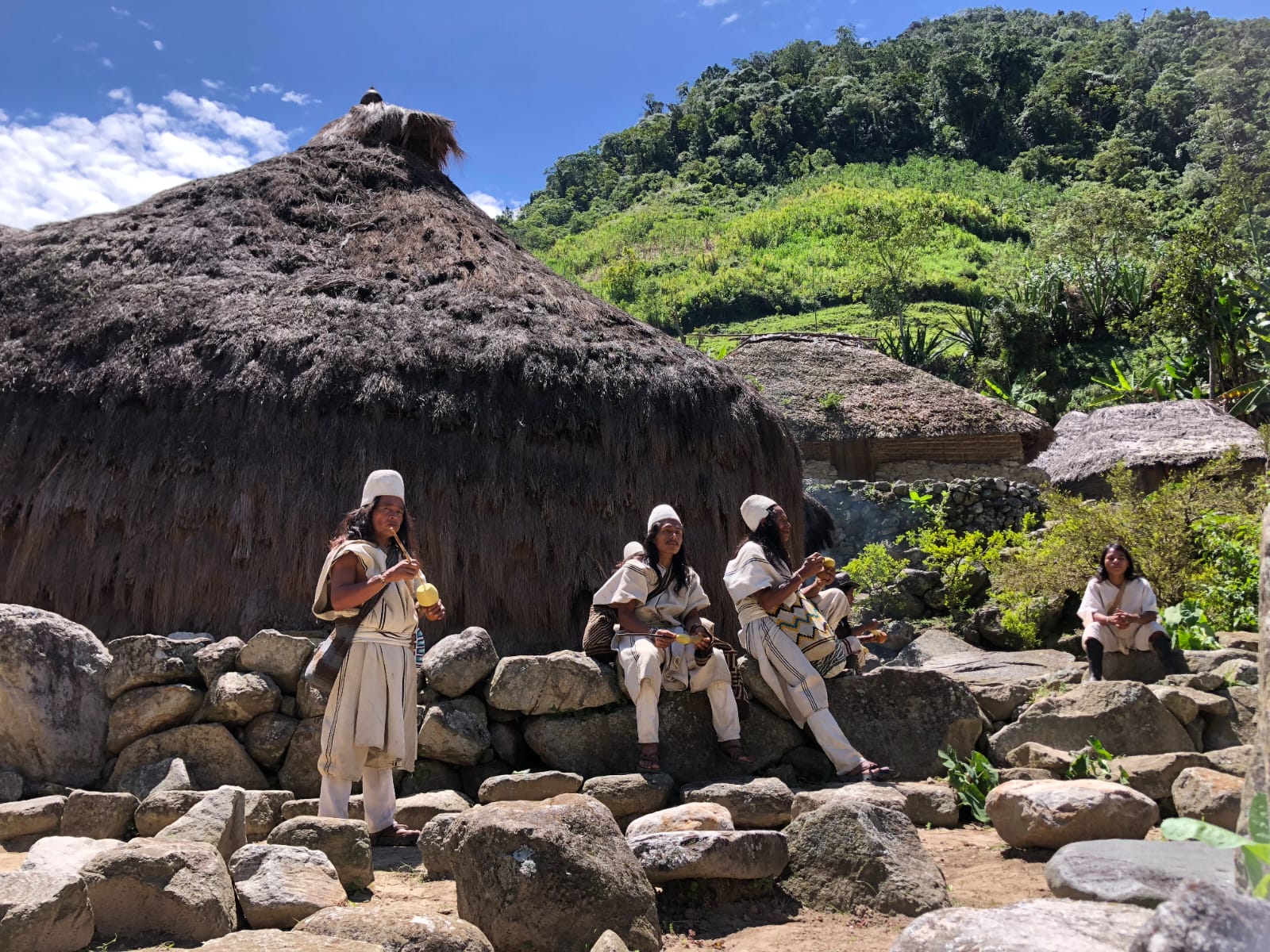Hopes are not high for the COP 28 conference in Dubai, especially given the presence of a huge number of oil industry delegates, but the meeting has focused attention on a number of serious issues, and could serve as a vehicle for action to right some of the most glaring injustices.
The first of these is carbon trading, with its generally poor results and control over large territories in the name of Conservation: in some cases for 90 years or more. Control that is a major problem for the Indigenous People who live in these areas.
A prime example is the deals signed by the United Arab Emirates based company Blue Carbon, and a number of African countries. According to the UK newspaper The Guardian, the company has signed deals that cover a fifth of Zimbabwe, 10% of Liberia, 10% of Zambia and 8% of Tanzania, a total of approximately 24.5 million Ha., together with a deal with the government of Kenya that involves an as yet unspecified area, but said to be millions of hectares.
Blue Carbon, operated by Sheikh Ahmed Dalmook Al Maktoum, has been in operation for only a year, and has no experience in managing carbon offset deals. As far as can be determined, the company has had no negotiations with the Indigenous Peoples who will be impacted by these deals, nor plans or policies in place to ensure the protection of their rights.
The agreement with Kenya highlights the issues and contradictions of carbon trading. On the one hand, William Ruto, the President of the country, has been creating for himself a profile as a energetic African climate defender, championing private sector investment in the continent, even being cited by Time magazine as one of Africa’s climate leaders. At the Africa Climate Conference in June of this year Ruto claimed the continent’s carbon sinks were an “unparalleled economic goldmine”.
On the other hand, Ruto’s government has been displacing hundreds of Ogiek people from the Mau Forest Complex in Eastern Kenya, where they have lived for centuries, evictions that according to the Ogiek’s lawyers, are likely a result of the deal with Blue Carbon. The case is symptomatic. Not only were the Ogiek never consulted about the conservation deal with the UAE company, a violation of their fundamental right, but are now considered by Ruto’s government as an ‘inconvenience’, and being displaced with violence.

The fact that the Ogiek have found some support in the Judicial arm of the Kenyan State, is positive – a stay order has been issued by the Naroc Law Court – but there is little guarantee the Kenyan government will respect the decision, and if it does, will not later find a way to interpret the ruling according to its own financial interests.
Respect for judicial rulings is one of the major problems facing Indigenous Peoples in their dealings with national governments and private sector partners. The problem is hardly restricted to Africa and more needs to be done on an international level to make sure that the rights of Indigenous Peoples are protected, and that legal judgements in their favor are respected.
Money is obviously key, and one major motive for the Kenyan government’s interest in private sector funding, is said to be the lack of follow through on past climate financing offered by richer countries. At the 2009 Copenhagen climate summit the figure of 100 billion USD a year by 2020, was pledged to poorer nations to help them cut emissions and adapt to climate change. The figure was reached, but only in 2022. And there is a caveat: in order to meet the goal, many already existing grants and loans have simply been reclassified. As one diplomat pointed out, direct financial aid has not reached 100 billion per year.
The problems with carbon offsetting have been more than well documented and the need for regulation is clear. After years of disagreement over possible rules, a UN climate change committee has now been charged with developing standards to be discussed at COP28. However, given the lack of meaningful participation of Indigenous Peoples in the process, and the speed with which the private sector is signing long term carbon trading agreements, the likelihood of meaningful standards being established, however small, will depend on international pressure.
LAND IS LIFE therefore calls for strict rules to be put in place at COP 28 to ensure:
1. That carbon offset projects actually do reduce emissions;
2. That governments ensure adherence to the standard of Free, Prior, and Informed Consent of any Indigenous Peoples that would be affected by these projects;
3. That a rigorous evaluation process be put into place for projects such as those of Blue Carbon and similar, together with a robust feedback and grievance mechanism that has the capacity to genuinely influence and shape carbon trading projects, fairly address any complaints arising during the terms of project agreements, and, when necessary, shut down harmful projects.
Photo 1: Ogiek house burned to ashes during evictions in November 2023. Land is Life



